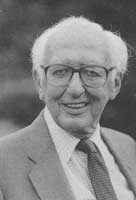Recently, I read a Washington Post article on innovation.  The WP interviewed Calestous Juma (see below), author of the July, 2016 book, “Innovation and Its Enemies:Why People Resist New Technologies.” The book was published by Oxford University Press (prestigious, to be sure). Priced at $29.95 plus an estimated s/h of $5.50, it sounds like a good purchase. There is quite a bit of information about the book and the author on the Oxford University Press site. This prompted me to think about what has changed in evaluation (not just technology) over the last 30+ years. First, though, I want to talk about the article.
The WP interviewed Calestous Juma (see below), author of the July, 2016 book, “Innovation and Its Enemies:Why People Resist New Technologies.” The book was published by Oxford University Press (prestigious, to be sure). Priced at $29.95 plus an estimated s/h of $5.50, it sounds like a good purchase. There is quite a bit of information about the book and the author on the Oxford University Press site. This prompted me to think about what has changed in evaluation (not just technology) over the last 30+ years. First, though, I want to talk about the article.
Article by Juma.
 Calestous Juma (Courtesy of Harvard)
Calestous Juma (Courtesy of Harvard)
Juma says that “people don’t fear innovation simply because the technology is new, but because innovation often means losing a piece of their identity or lifestyle.” He goes on to say that “Innovation can also separate people from nature or their sense of purpose.” He argues that these two things are fundamental to the humon experience. I have talked about sense of purpose previously. I wonder if nature is part of purpose or if a sense of purpose comes from a person’s nature?
One’s temperament or one’s nature?
I think the later since the person’s temperament (nature) is hard wired at birth at least according to Stella Chess  , Alexander Thomas
, Alexander Thomas  , and Herbert G. Birch
, and Herbert G. Birch  .
.
Chess, Thomas, and Birch* describe the individual with three patterns:
- Easy: Children have a positive mood and are adaptable; they are moderate in activity and intensity and are interested in new things;
- Difficult: Children with a negative mood and are intense and low in adaptability;
- Slow to warm up: Children who do not adapt well to change, withdraw in new settings, and are shy, although they adapt well if given time.
They attribute about 40% of individuals as “easy”, 10% as “difficult” and 15% as “slow to warm up”. We will not be concerned with the remaining 35% of individuals as they have a mix of traits and do not fall into one of these three groups. The 25% (difficult and slow to warm up) are what are applicable to Juma’s premise. They find change hard (low adaptability or slow to adapt). These individuals are not the change agents, not the early adapters. They are the individuals that Juma says that “innovation…means loosing a piece of their identity or lifestyle”. The new technology is interesting and not for them. Because I can certainly identify–the phrase “kicking and screaming” comes to mind–change is hard.
Change is hard.
This approach certainly applies to evaluation. I introduced the concept of “systems” and “systems thinking” at the presidential plenary when I was AEA president; I got a lot of flack. Yes, I presented the concept in simple terms (did I intuit what Juma would write about?); yes, I did not expand on the complexity of the concept (systems is very complex). Today, there is a Topical Interest Group (TIG) on this topic. (If you enter “systems” in the AEA search box, it will return over 9,000 individual posts.) Bob Williams has written much on this topic; I would call him an early adapter.
There is a lot more I can say about evaluation and will in the coming weeks.
molly.
*References
Chess, S., Thomas, A., & Birch, H. G. (1965). Your child is a person. NY, NY: The Viking Press.

